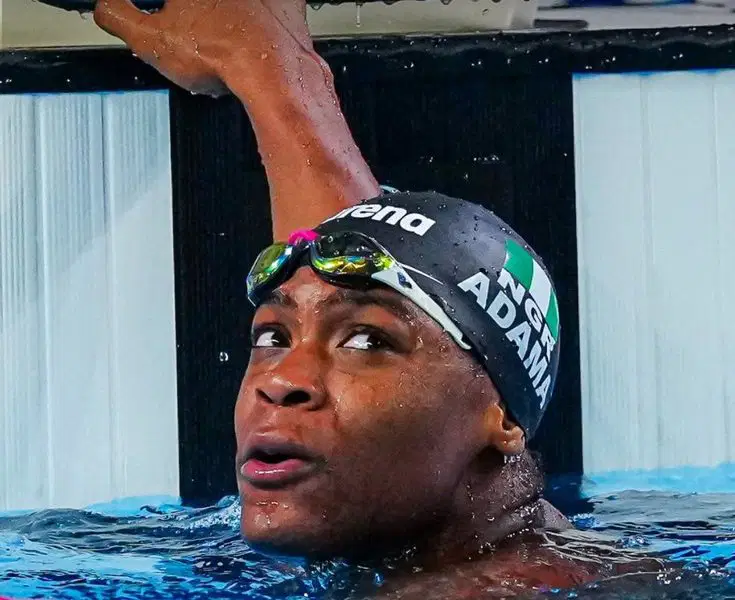Nigeria has etched its name into the global swimming stage as 17-year-old Abduljabar Adama secured the country’s first-ever medal at the World Aquatics Junior Swimming Championships in Romania. Adama, competing in the men’s 50m butterfly, clocked 23.64 seconds to clinch silver, narrowly missing gold to Great Britain’s Dean Fearn, who finished in 23.54 seconds.
Adama’s feat was not just historic but record-shattering. The teenager broke his own Nigerian national record twice in one day, first lowering it from 23.81 to 23.61 in the preliminaries and then improving further to 23.48 in the semifinals.
His semifinal time was especially significant, as it was just 0.2 seconds shy of qualifying for the semifinals at the senior World Championships and within reach of the World Aquatics “A” cut of 23.36.
Adama’s breakthrough comes at a pivotal time, as the 50m butterfly is set to debut at the Olympic Games in 2028. With his current trajectory, analysts see him as a potential finalist in Los Angeles, a stage where Nigeria has historically struggled, winning just 27 Olympic medals across all sports, none in swimming.
His steady rise, fueled by international training at the Mount Kelly Swimming Academy in the UK, underscores his potential to become Nigeria’s first Olympic swimming medalist.
The National Sports Commission (NSC) hailed Adama’s success as a milestone for Nigerian sports. Director General Bukola Olopade praised his achievement, saying, “Abduljabar Adama’s silver medal is a proud moment for Nigeria and Africa. His hard work and talent have once again demonstrated that our athletes can stand shoulder to shoulder with the best in the world.”
Adama’s journey began at the National Youth Games, where he was discovered and awarded a scholarship to train abroad.
His growing list of accolades includes three gold medals and a bronze at the Africa Junior Swimming Championships earlier this year, further cementing his reputation as Nigeria’s brightest aquatic prospect.
Adama’s silver medal marks not just a personal triumph but a turning point for Nigerian swimming. With sustained support, he has the potential to transform the nation’s presence in global aquatics and inspire a new generation of swimmers.

